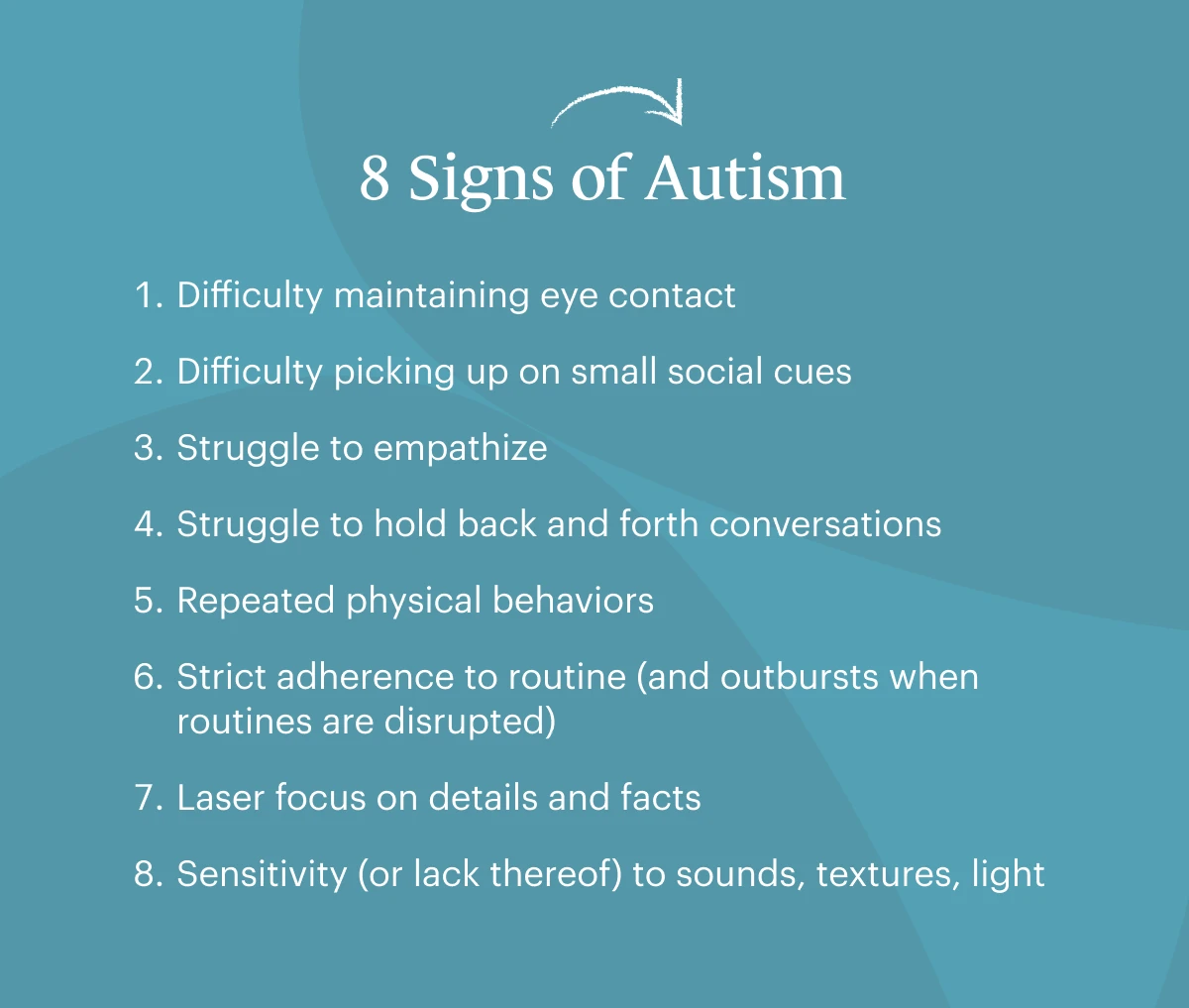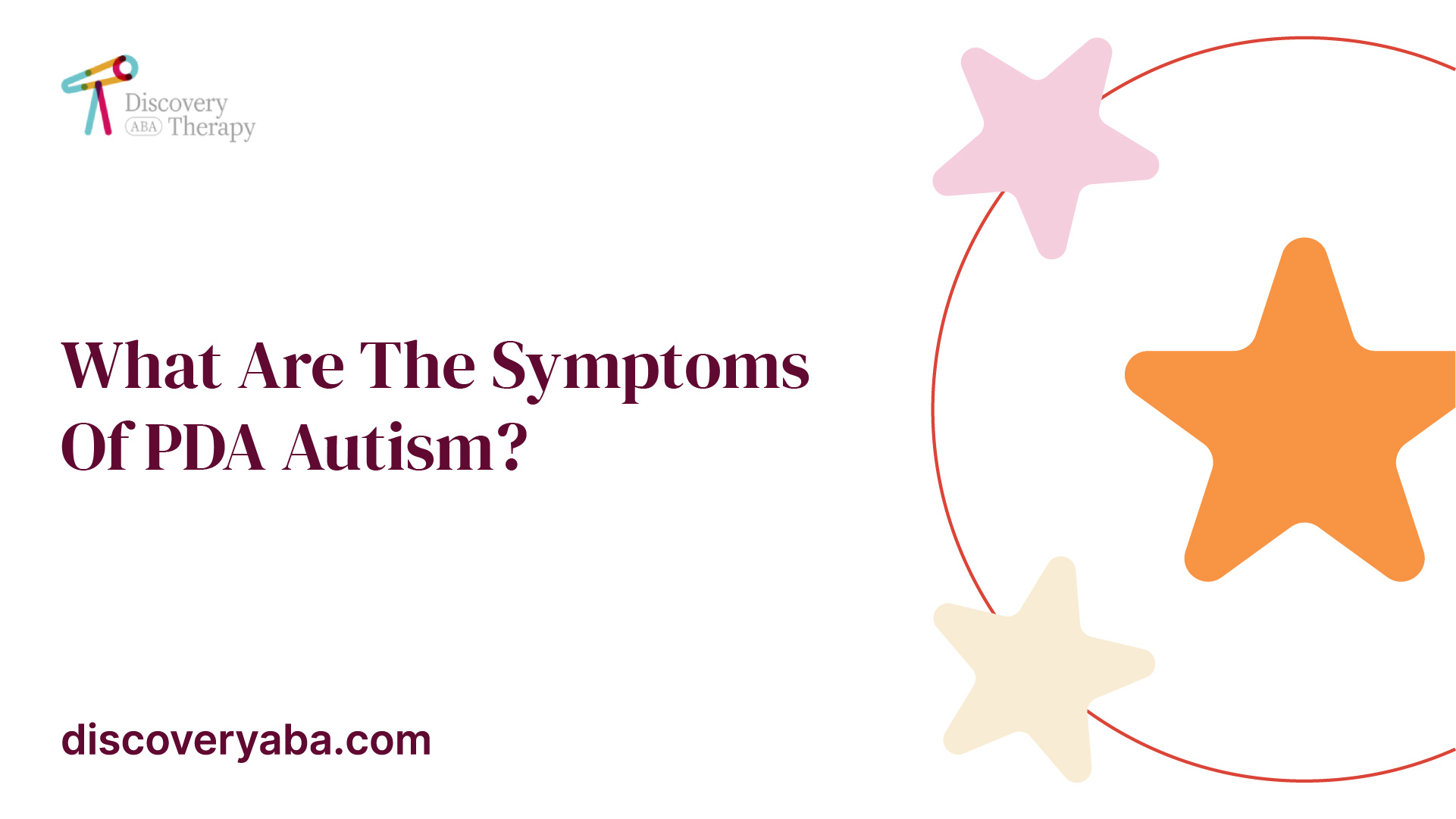Turning challenges into growth using Autism Behavioral Therapy
Turning challenges into growth using Autism Behavioral Therapy
Blog Article
Trick Symptoms And Signs to Recognize in People With Behavioral Autism
When you encounter someone with behavioral autism, recognizing vital signs and symptoms is important. You could see challenges in social communications and interaction, along with a strong demand for regimens. Additionally, sensory level of sensitivities can bring about overwhelming experiences. Comprehending these attributes can boost your assistance and interventions, however there's more to reveal about how these habits manifest in daily situations. Let's explore what these indications truly look like.
Obstacles in Social Interactions
When you interact with a person on the autism spectrum, you could discover they struggle with social hints and communication. These challenges can make social interactions really feel frustrating for them.
When they do engage, they may chat concerning their passions in great information without noticing if you're interested. Understanding these challenges can help you come close to communications with compassion and patience, promoting a more comfortable setting for both of you.
Difficulty With Verbal and Non-Verbal Communication

Non-verbal interaction can be a lot more challenging. You might see a lack of eye call or minimal use of gestures, which can make communications feel uncomfortable. Face expressions may not always line up with the discussion, bring about confusion regarding their sensations. Recognizing these signs is vital, as it assists you much better support and involve with people on the autism range. By understanding their interaction obstacles, you can cultivate more significant connections and provide an extra supportive atmosphere.
Recurring Behaviors and Regimens
Communication challenges commonly accompany other signs of autism, such as repeated behaviors and a strong preference for routines. You might see that people with autism typically participate in particular, repeated actions, like hand-flapping, shaking, or repeating phrases. These habits can offer convenience and a feeling of control in an often overwhelming globe.
Regimens are similarly important; many people grow when they adhere to an organized routine. You might find that adjustments to these regimens can cause substantial distress. If they have an everyday routine of eating breakfast at a particular time or adhering to a particular path to institution, any kind of disturbance can cause stress and anxiety.
Identifying these patterns aids you recognize their actions and provide assistance. By accommodating their demand for routine and allowing repeated actions, you can produce a much more comfortable environment that relieves their obstacles.
Sensory Level Of Sensitivities

Usual Sensory Triggers
Sensory sensitivities can significantly affect everyday life for individuals with autism, as certain stimuli typically cause overwhelming reactions. Typical sensory triggers consist of loud sounds, bright lights, and solid scents. You might discover that sudden sounds, like alarms or sirens, create stress and anxiety or distress. Likewise, fluorescent lighting in shops can feel uncomfortable and extreme. Textures can likewise play a considerable role; rough materials or particular food textures might be unbearable for you. Additionally, crowded places can overwhelm your senses, making it tough to kick back or concentrate. Understanding these triggers can aid you handle your atmosphere better. By being aware of what influences you, you can take actions to lessen pain and improve your everyday experiences.
Behavior Reactions Explained
Comprehending your behavioral reactions to sensory level of sensitivities is important, as they typically disclose exactly how you connect with the world. You could discover that specific noises, lights, or structures overwhelm you, bring about stress and anxiety or discomfort. When confronted with these stimuli, you may take out, cover your ears, or perhaps react strongly. These reactions aren't just quirks; they're your way of coping with overstimulation. You might additionally locate on your own looking for certain sensory experiences, like deep pressure or quiet environments, to aid ground yourself. Recognizing these patterns assists you understand your needs better and can lead how you connect them to others. By recognizing your sensory level of sensitivities, you can work in the direction of creating a setting that feels much more workable and comfy for you.
Coping Techniques Overview
Acknowledging your sensory level of sensitivities look at these guys is simply the initial step; currently it's time to check out coping approaches that can assist you handle those experiences properly. Start by developing a sensory toolkit tailored to your requirements. This might include noise-canceling earphones, fidget playthings, or soothing scents. Establishing an organized regimen can likewise give predictability, reducing anxiousness around sensory overload. When you feel overwhelmed, take breaks in a silent area to collect yourself. Practicing mindfulness methods like deep breathing can aid ground you in the minute. Furthermore, interact your requirements with those around you; having encouraging family and friends can make a huge distinction. Keep in mind, discovering what works finest for you may take time, so be open and patient to attempting brand-new approaches.
Limited Interests and Focus
While numerous people establish a large range of passions, those with autism commonly show restricted passions and an extreme focus on details topics. You may discover that someone with autism can invest hours diving into their preferred subject, whether it's a particular kind of train, a certain motion picture, or a scientific idea. This intense emphasis isn't simply a pastime; it can become a central component of their identification and social interactions.
You might find that discussions focus on these interests, and they may battle to participate in more comprehensive subjects. For them, these focused interests supply comfort and a sense of mastery. While it is very important to encourage exploration of new topics, valuing their enthusiasms is similarly necessary. By comprehending and acknowledging these restricted passions, you can foster a supportive environment where they feel valued and understood, permitting more purposeful connections and interactions.
Psychological Policy Difficulties
People with autism commonly encounter obstacles in psychological regulation, why not check here which can be affected by their intense focus on specific interests. You could discover that when a person is deeply participated in a favored activity, they can experience solid emotions, whether exhilaration or disappointment. This intensity sometimes makes it hard for them to move gears or handle their sensations when things don't go as intended.

Variability in Developmental Landmarks
When it comes to developing milestones, you'll observe that individuals with autism usually reveal a large array of variability. You could see a kid stand out in language abilities yet struggle with social interactions.
It's necessary to acknowledge that each individual's trip is special. Some might establish intricate abilities early, only to face obstacles later on. Others might take longer to accomplish basic landmarks yet then flourish in certain locations. Observing these patterns can help you recognize their staminas and requires much better.
Often Asked Inquiries
Exactly How Is Autism Detected in Children and Grownups?
To diagnose autism in kids and grownups, specialists examine actions, interaction abilities, and social communications. They commonly make use of standardized tests, interviews, and observations to establish if a private fulfills the criteria for autism spectrum condition.
Exist Various Types of Autism Range Disorders?
Yes, there are various kinds of autism range disorders, consisting of Asperger's syndrome and pervasive developing disorder-not otherwise specified. Each type differs in extent and attributes, so comprehending these distinctions can assist you better support people with autism.
What Therapies Work for Individuals With Autism?
When taking into consideration reliable treatments for people with autism, you'll locate options like Applied Behavior Analysis, speech therapy, and work-related treatment. Each strategy can assist boost communication, social skills, and everyday working customized to specific demands.
Can Individuals With Autism Lead Independent Lives?
Yes, people with autism can lead independent lives. With the appropriate assistance, skills training, and sources, you can help them establish self-sufficiency, take care of daily tasks, and grow in numerous environments, promoting their freedom.
How Can Families Assistance Enjoyed Ones With Autism?
You can sustain your liked ones with autism by creating a structured environment, urging their interests, exercising perseverance, promoting communication, and promoting social abilities. Celebrate their accomplishments, regardless of how small, and construct a helpful community.
Although many individuals on the autism range can understand and make use of language, they commonly encounter significant difficulties with both non-verbal and verbal interaction. Recognizing these indications is vital, as it assists you better assistance and engage with individuals on the autism spectrum. You could observe that individuals with autism typically engage in particular, repetitive actions, here are the findings like hand-flapping, shaking, or duplicating phrases.Sensory sensitivities can considerably influence daily life for people with autism, as certain stimuli often activate overwhelming responses.When it comes to developmental milestones, you'll discover that people with autism frequently reveal a large range of irregularity.
Report this page